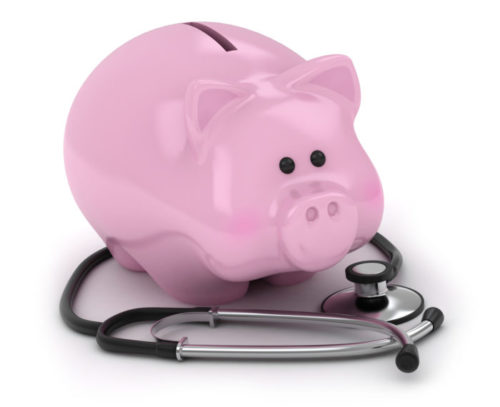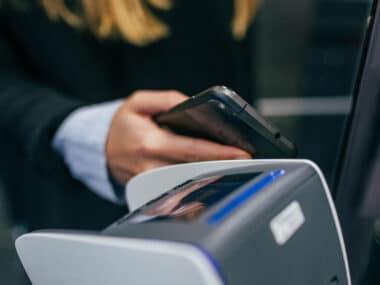More often than not, unexpected costs arise. These costs can be debilitating, especially if you do not have money saved up to pay off your acquired debt. These costs are also called financial emergencies because you may not have the funds to pay.
It’s important to know what constitutes a financial emergency and what does not. A financial emergency is not:
- Tax expenses;
- Minor house repairs;
- Vehicle maintenance;
- A wedding getaway;
- A large vacation.
People can plan for these expenses. Financial emergencies occur without warning and can cost you thousands of dollars. This article will help you understand the different types of financial emergencies and how to avoid them.
Table of Contents
Types of Financial Emergencies
Many types of financial emergencies can leave you in debt:
- Bankruptcy: For those with ample amounts of debt, bankruptcy may be inevitable. Filing for bankruptcy can help you get out of most debts, including credit card debt. However, it’s important to note that you cannot file bankruptcy for student loans. Additionally, bankruptcy can affect your credit score negatively, so you should prepare to repair it after filing.
- Death of a spouse: A spouse’s death is not only emotionally traumatizing but also financially hurtful. You could be left with large expenses such as funeral costs, child expenses, and your partner’s debt. Taking out life insurance can help you adjust to living with one household income without your finances taking a huge hit.
- Divorce: Legal separation is a financial emergency that most people don’t think about. While many variables affect the cost of divorce, the average divorce can cost up to $15,000 per person. If you are planning a divorce, it may help both you and your partner to save for the expense.
- Health: Often people are saddled with hospital bills that they have to pay out of pocket; 41% of people have medical bill problems or are paying off medical debt. These bills can run up thousands of dollars of medical debt which may leave you facing a financial emergency.
- Marriage: Combining two people’s debts can sometimes lead to a financial emergency, especially if one person has more debt than the other. You may need to budget more appropriately or create new spending habits to deal with the new debt. It’s better to tackle debt together rather than separately, as separation can be even more expensive.
- Natural disaster: Depending on where you live, natural disasters might be common. It’s important to keep an eye on weather reports and to secure your belongings in case of a disaster. Make sure your homeowner’s insurance or renter’s insurance covers your belongings inside your shelter and get additional insurances, like flood insurance, if necessary.
- Retirement: Living on a limited income might be a transition for some and can constitute a financial emergency, especially if they are forced into retirement. Also, Social Security may not be an option for people who have entered the workforce after 2014. Many people plan on saving for retirement by using a 401(k) or an IRA instead of solely relying on Social Security income. Consulting a financial advisor can also help your finances in the long run.
- Job loss: Losing a job can happen for many reasons, some of which are in your control and some which are not. While you may not lose a job for some time, it’s a good idea to save money in case it does happen. A good rule of thumb to follow is to save at least three months’ pay so you can deal with immediate costs such as utility bills, rent, or mortgage payments if you become jobless.
How to Deal With Financial Emergencies
Financial emergencies can leave people feeling stressed and overwhelmed. These emergencies could also result in severe consequences like:
- The loss of your home;
- The loss of your health;
- Defaulting on other important bills.
However, some solutions can help you anticipate financial emergencies without putting yourself into deeper debt.
Create an Emergency Fund
When dealing with personal finances, many people create an emergency fund for unexpected costs that may arise. This fund is a type of savings account that is primarily for different emergencies — be it health-related, work-related, or home-related. To create an emergency fund, you should:
- Start as soon as possible;
- Determine a baseline amount of money;
- Create a budget;
- Set goals and priorities;
- Be consistent.
Make sure you can pay your primary expenses first, such as rent, mortgage, insurance, utility bills, and food before you contribute to your emergency fund. If you find you do not have any leftover funds to contribute to an emergency fund, you can look at your budget to see what expenses you can eliminate.
Build a Budget
Creating a budget and maintaining it can help you anticipate financial emergency expenses. Budgets are important because:
- It can help you save money;
- You have better control over your finances;
- It can give you peace of mind;
- It can help you become debt-free.
By tracking your spending habits, you’ll be able to understand where your money is going and strategically save for unexpected costs. Also, you can adjust your budget to plan for the new expense every month.
Manage Your Debt
When faced with a financial emergency, it’s understandable to think of using credit cards as a solution. However, this could increase your overall debt and affect your credit score because credit cards have a high interest rate.
The average credit card interest rate is 14.52% — typically the highest interest rate of all debt. It may be more beneficial to work out a payment plan with the company you owe money to, as you may be able to get a lower interest rate.
Get a Loan
While it’s important to keep your debt manageable, some debt must be paid off quickly. In times like these, you can opt for a personal loan. There are many types of personal loans including:
- Unsecured personal loans;
- Secured personal loans;
- Fixed-rate loans;
- Variable-rate loans;
- Debt consolidation loans;
- A personal line of credit;
You can also use other loans to help pay down debt, like:
Most of these loans require fair-to-excellent credit, however, it is possible to get a personal loan with bad credit. It’s important to read the terms and conditions of these loans to ensure you can pay them back promptly.
Financial emergencies may arise unexpectedly. By creating a budget, managing your debt, building an emergency fund, and opting for a personal loan, you determine the best possible course of action when faced with a financial emergency, without putting yourself in more debt.
Image Source: https://depositphotos.com/





